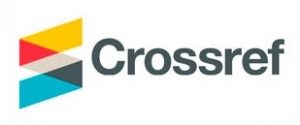8. Theoretic-experimental evaluation of the solid-propellant grain erosive burning
Organization: Yangel Yuzhnoye State Design Office, Dnipro, Ukraine
Page: Kosm. teh. Raket. vooruž. 2024, (1); 72-77
DOI: https://doi.org/10.33136/stma2024.01.072
Language: Ukrainian
Annotation: The high demands for the flow rate and thrust characteristics specified for the modern solid-propellant rocket motors (SRM) under the strict mass and overall dimensions constraints require high level of mass fraction of propellant. And in the process of propellant grain combustion, erosive burning often takes place (increase of propellant burning rate depending on combustion products flow rate along the grain channel). This may play both negative (off-design increase of chamber pressure) and positive role (for example, increasing the launch thrust-to-weight ratio of the rocket). It is typical of the main SRMs of various rocket systems (multiple launch rocket systems, anti-aircraft guided missiles, tactical missiles, boosters). This paper proposes a methodology for calculating the internal ballistic characteristics of a solid propellant rocket motor under erosive burning, which is relatively time and resource consuming. The methodology is based on equidistant model of propellant grain combustion, where grain is divided lengthwise into a number of intervals. For any point of time during the engine operation, burning area and port area of each interval are calculated, taking into account erosive impact on each interval; total burning area is the sum of all intervals burning areas. Gas flow rate in each interval of the grain channel is calculated using gas-dynamic equations. The motor mass flow rate is a mass input sum of all the intervals; and the burning rate in each interval is estimated with proper erosion factor. The combustion chamber pressure had been calculated for four erosive burning models proposed by different authors. All the models showed convergence with the experimental SRM test data sufficient for engineering estimate (in particular, for maximum chamber pressure and combustion time). Selected as a result erosive burning model may be used to design new motors with solid propellants similar in chemical composition, and the model parameters are to be further customized using the test specimens.
Key words: rocket motor, solid propellant, erosive burning, internal ballistic characteristics
Bibliography:
- Arkhipov V. Erosionnoe gorenie condensirovannykh system. Sb. tr. ІХ Vserossiyskoy nauch. conf. 2016 g. (FPPSM-2016). Tomsk, 2016.
- Mukunda S., Paul P. J. Universal behaviour in erosive burning of solid propellants. Combustion and flame, 1997. https://doi.org/10.1016/S0010-2180(96)00150-2
- Sabdenov K. , Erzda M., Zarko V. Ye. Priroda i raschet skorosti erozionnogo goreniya tverdogo raketnogo topliva. Inzhenerniy journal: nauka i innovatsii, 2013. Vyp. 4.
- Evlanova A., Evlanov A. A., Nikolaeva Ye. V. Identifikatsiya parametrov erozionnogo goreniya topliva po dannym ognevykh stendovykh ispytaniy. Izvestiya TulGU. Tekhn. nauki. 2014. Vyp. 12, ch. 1.
- Yanjie Ma, Futing Bao, Lin Sun, Yang Liu, and Weihua Hui. A New Erosive Burning Model of Solid Propellant Based on Heat Transfer Equilibrium at Propellant Surface. Hindawi International Journal of Aerospace Engineering, Vol. 2020, Article ID 8889333. https://doi.org/10.1155/2020/8889333
- Williams, Forman A., Combustion Theory. The Benjamin/Cummings Publishing , Menlo Park, 1985.
- Irov Yu. D., Keil E. V., Maslov B.N., Pavlukhin Yu. A., Porodenko V. V.,
Stepanov Ye. A. Gasodynamicheskie funktsii. Mashinostroenie, Moskva, 1965. - William Orvis. EXCEL dlya uchenykh, inzhenerov i studentov. Kiev: «Junior», 1999.
Full text (PDF) || Content 2024 (1)
Downloads: 117
Abstract views:
1377
Dynamics of article downloads
Dynamics of abstract views
Downloads geography
| Country | City | Downloads |
|---|---|---|
| USA | Ashburn; Dallas; Los Angeles; Las Vegas; Los Angeles; Ashburn; Columbus; Buffalo; New York City; Buffalo; Dallas; Ashburn; Ashburn; Phoenix; Phoenix; Phoenix; Phoenix; Phoenix; Phoenix; Phoenix; Phoenix; Phoenix; Phoenix; Phoenix; Phoenix; Phoenix; Phoenix; Phoenix; Phoenix; Phoenix; Phoenix; Phoenix; Phoenix; Phoenix; Phoenix; El Monte; El Monte; El Monte; El Monte; Thousand Oaks; Buffalo; Seattle; Ashburn; Seattle; Houston; Ashburn; Ashburn; Ashburn; North Charleston; Council Bluffs; Mountain View; Mountain View; Portland; Portland; Portland; Portland; San Mateo; San Mateo; Ashburn; Ashburn; Ashburn; Ashburn; Ashburn; Ashburn; Pompano Beach; Lakeside | 66 |
| China | Xiamen;; Pekin;; Tianjin; Ningbo; Pekin; Shenzhen; Pekin; Pekin;; Pekin | 12 |
| Germany | Falkenstein; Falkenstein; Falkenstein; Düsseldorf; Karlsruhe; Limburg an der Lahn;; Falkenstein; Leipzig; Leipzig | 10 |
| Singapore | Singapore; Singapore; Singapore; Singapore; Singapore; Singapore; Singapore; Singapore | 8 |
| France | ; Paris; Ivry-sur-Seine; Paris; Paris | 5 |
| Canada | Toronto; Toronto; Toronto; Toronto; Toronto | 5 |
| Unknown | Adelaide;; Hong Kong | 3 |
| Ukraine | Kyiv; Kremenchuk | 2 |
| India | Chiplun | 1 |
| Vietnam | Hanoi | 1 |
| Brazil | Nova Iguaçu | 1 |
| Lithuania | Vilnius | 1 |
| Great Britain | Leicester | 1 |
| Netherlands | Amsterdam | 1 |
Visits:1377



